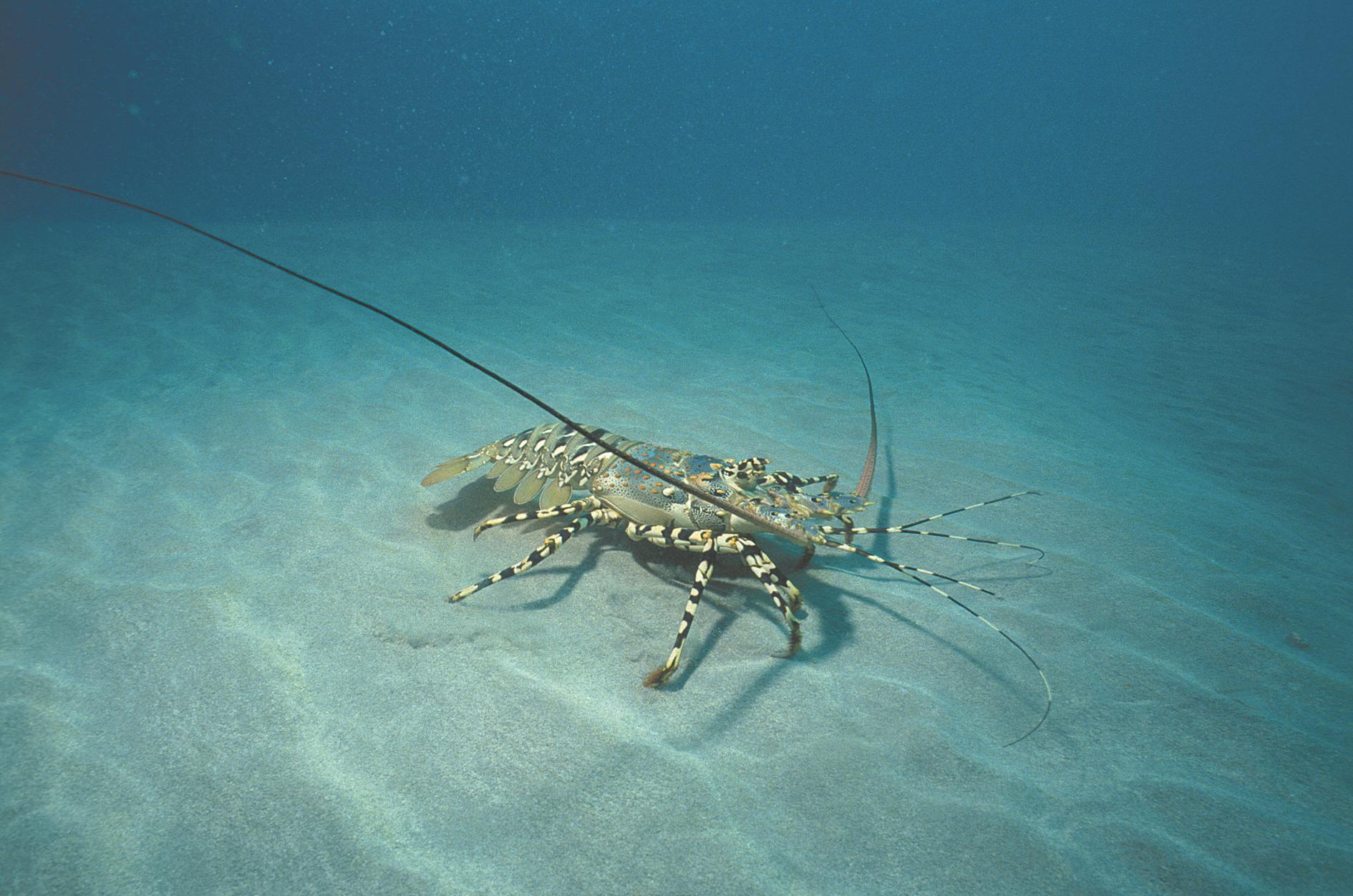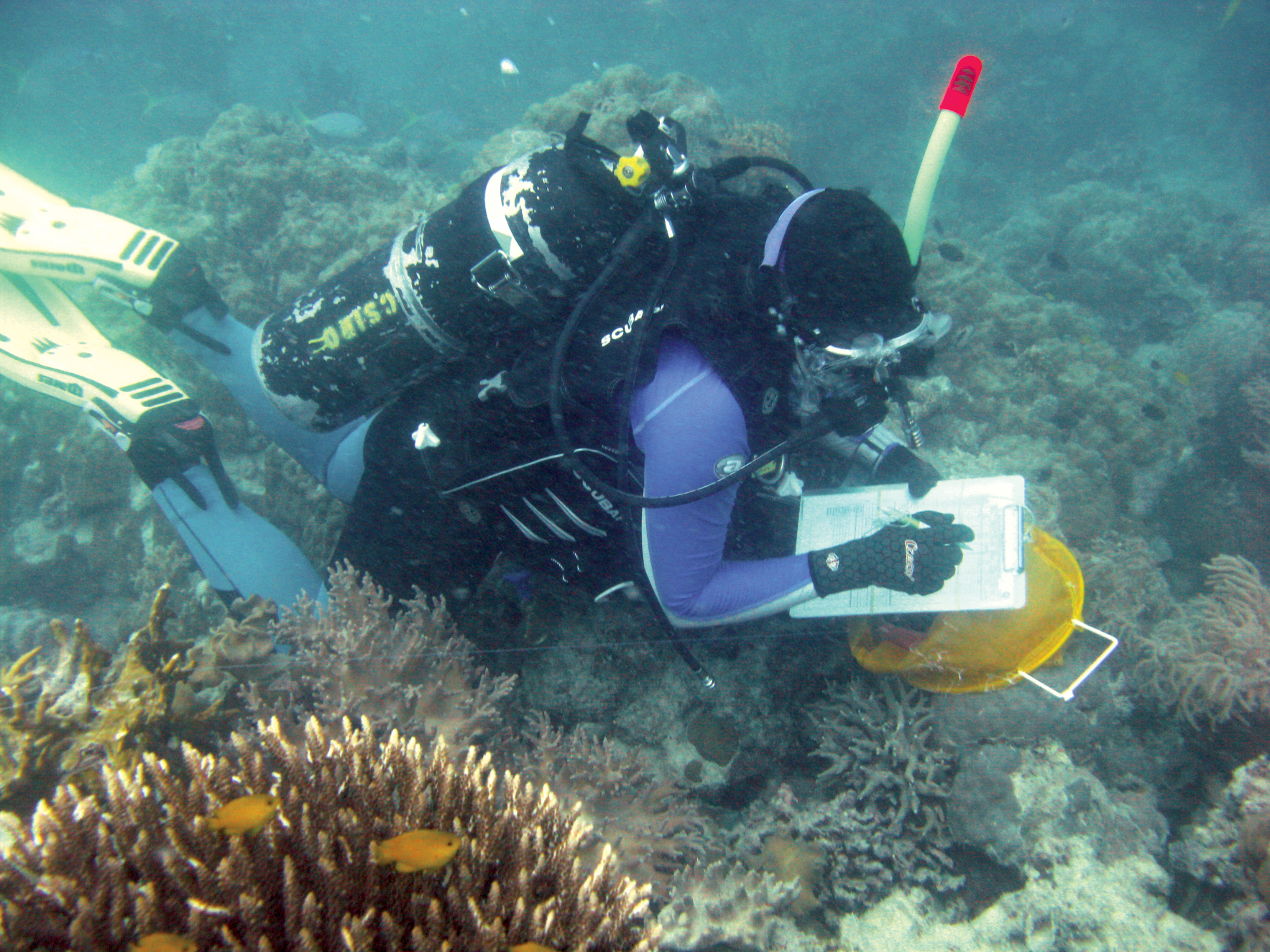In this week’s Friday Fish Time we go behind the scenes- or, perhaps, out of the water. We have spent past Fridays drooling over this delicious anchovy pizza and prawn salad. Today we’re talking lobster, although we don’t mention thermidor or bisque (if you’re upset, here are nice recipes). We’ve been working with tropical rock lobster fisheries in the Torres Strait to measure the social and cultural side of managing a fishery.
Common name: tropical rock lobster. Scientific name: Panulirus ornatus. Family: Palinuridae.
Rock lobsters get a grip on lifestyle and livelihood
By Andrea Wild
Around the world, small-scale fisheries employ a whopping 38 million people. For the Indigenous communities that these fisheries support, balancing cultural and lifestyle factors can be just as important as balancing profit and sustainability.
“We can count dollars and animals easily enough, but how do we measure the social and cultural side of managing a fishery?” says Dr Eva Plaganyi of CSIRO’s Wealth from Oceans Flagship.
A team of CSIRO researchers has been working with the Torres Strait tropical rock lobster fishery to develop a scientific way to integrate cultural factors into natural resource management.
The research is particularly important for a resource like the Torres Strait tropical rock lobster fishery, which is bound by a treaty between Australia and Papua New Guinea that spells out the social objectives of the fishery and protects traditional fishing practices.
In their study, the team used methods ranging from mathematics and modelling to social science interviews. Their results reveal the potential trade-offs of management decisions that affect not only a resource but the people who depend on it.
“Profit-based thinking usually scores highly in a capitalistic society, but we found that two key social indicators – equity and a sense of self-determination – underpin successful management of many fisheries,” says Dr Plaganyi.
“Our objective, scientific approach can be applied to natural resource management beyond fisheries,” she says.
This research was funded by Australian Fisheries Management Authority and CSIRO. It has built on CSIRO’s long history of involvement in the Torres Strait, with CSIRO divers planning their 25th annual lobster survey this year.
Research underwater: A diver completing a rock lobster survey.
‘Integrating Indigenous Livelihood and Lifestyle Objectives in Managing a Natural Resource’ will be published this week in the online early edition of Proceedings of the National Academy of Sciences.



